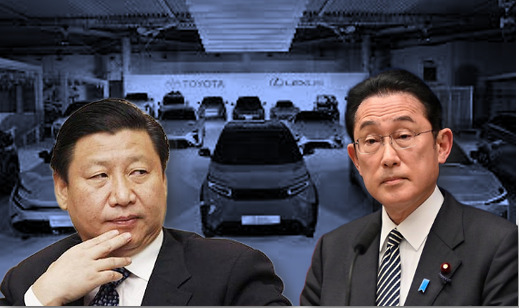The Japanese EV industry is dying! The reason is simple. Russia holds a crucial position in the world’s nickel supply chains, a key material in the production of EV batteries. So, due to sanctions on Russia, nickel prices have gone up and supplies have been throttled. Here, it must be noted that Russia produces about 10% of the world’s nickel supply, led by Norilsk Nickel, the world’s top nickel miner.
Russia’s importance in EV battery supply chains
Moreover, Russia is also the second-biggest producer of cobalt. The cost of batteries makes up at least 30% of the total production cost of an electronic vehicle. Thus, an unprecedented hike in nickel prices has made Japanese EV makers less competitive in international markets while their Chinese rivals are making a fortune out of it.
Isao Abe, chair of Japan’s Battery Association for Supply Chains (BASC) said, “China is tough to compete with on price. It’s a difficult battle.” It’s not because China has easy access to nickel and cobalt due to its proximity to Russia, but it’s using a different technology altogether that doesn’t use nickel altogether.
China uses LFP cathodes in making batteries
Chinese companies are increasingly using lithium iron phosphate (LFP) cathodes in the production of batteries, which do not use nickel or cobalt. That means that, by using such cathodes, Chinese manufacturers can produce batteries at cheaper rates. The problem for Japan is that Chinese manufacturers hold a near-monopoly on LFP cathodes.
Satoru Inubushi, a managing director at Nichia, which once enjoyed a 20% share of the cathode market, said, “Chinese players will quickly displace Japanese companies. They’ll have the battery market under their thumb.”
But why can’t Japan develop its LFP cathodes industry? Well, the island nation doesn’t possess the important components. Instead, China sits over large reserves of all core components used in the production of LFP cathodes.
China accounts for about 60% of the global supply of fluorite ore and is a major production center for a compound made with fluorite which is used in the electrolyte.
Another major headache is that Japanese producers are heavily dependent on China for graphite, a core component of it. China produces over 50% of the world’s natural graphite, as well as a large portion of the synthetics.
Read More: Kishida’s Russia policy will be the end of him
Japan’s EV sector is at China’s mercy now
So, Japanese battery makers are now faced with two difficult choices. The first option is to produce batteries using nickel and cobalt at higher prices and keep on losing market share to their Chinese rivals. The other option is to collaborate, and not compete, with Chinese battery firms. The second choice looks less painful in the near term, but might not remain so in the long run though.
However, this means that Japan’s electric vehicle industry would now be at the mercy of the Chinese. China in the near future could also use this leverage to undermine Japan’s security interests in the South China Sea and the Indo-Pacific region.
Asahi Kasei, the world’s second-largest producer of battery separators, has teamed with top-ranked Shanghai Energy New Materials Technology to bring a new factory online in China this year. Thus, by sanctioning Russia, the Kishida administration in Japan has set a great reset with China in motion. Undoing years of efforts by the former administration of Shinzo Abe, the Kishida administration is helping China recouple its economy with that of Japan.
Read More: Fumio Kishida will go down in history as one of the worst Japanese Prime Ministers
The Kishida administration, in a bid to please Joe Biden, has foolishly announced sanctions on Russia that run contrary to Japan’s interests.
Kishida’s anti-Russia rally has already killed the ongoing Russia-Japan peace efforts.
These sanctions on Russia are coming to haunt Japan’s EV industry. Now, to isolate and punish Russia, Japanese firms are being forced to prostrate before China.
This will severely hamper Japan’s ability to stand up to Chinese aggression in its neighborhood and give China an upper hand in any imminent economic or security tussle between the two nations.
